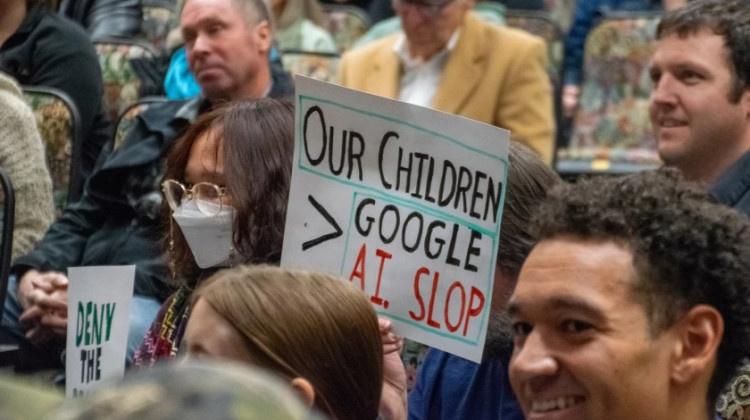A commission tasked with deciding how many police are needed and how many the city can afford is getting closer to making a recommendation.
Members heard from national experts on the issue, Wednesday.
Kim Kohlhepp of the International Association of Chiefs of Police told the commission the city has to ask a series of questions.
"It's a significant expenditure. It's a lot of money to pay for police. What can (citizens) expect to get back? And, what can they expect to get back with 30 officers per year versus 50 versus 100?," he said. "That's the decision (the commission) needs to make. It's not just how many more officers do we need, but what are they going to do and is it worth it?"
Commission members agree IMPD is understaffed somewhere between 200 and 700 officers.
The department is requesting at least 80 to 100 new officers a year. It loses about 45 every 12 months.
Kohlhepp says if the city fails to grow its force it will have issues that extend beyond crime.
"Citizens perceptions of safety and their actual safety is the foundation upon which many, many things are built, including economic development, quality of life issues," he said. "Police do a lot more in today's society, in Indianapolis specifically. When things fall through the cracks and nobody else can deal with them, it's time for the police. And, that serves a very important function."
Denver Police Chief Robert White says IMPD needs to better articulate its needs through stats.
"I'm not sure the police department is data driven," he said. "I think they have the desire to be data driven, but I'm not so sure they are at the point where they have the information where they can make those decisions," he said. "I think they can articulate those decisions based on 'this is what we believe,' but I am not in a position to go to the mayor and say I need 100 police officers without saying this is exactly what you are going to get for those 100 police officers."
Indianapolis Mayor Greg Ballard agrees.
"As a police dept. we need to get better at using modern police techniques," he said. "It's how you use the police, not the number. I've said it repeatedly; we were just throwing money at public safety for a long time without expecting anything in return. I think that dynamic is changing."
The commission will meet three more times before making a recommendation to the city county council March 31.
Fraternal Order of Police First Vice President Rick Snyder says how Indianapolis handles the situation could serve as a national model.
"National leaders from all over the country are watching what we are going to do in Indianapolis," he said. "So, it's not just for us. It's for these other cities and municipalities around the country. They are wanting to see what we come up with. They are also wanting to help. But, we are really the only one out there that is proactively trying to do something about that."
And he says the recent string of violent crime in the city points to the urgency of coming up with solutions.
"People say 'I can't believe these brazen, heinous crimes that are occurring in neighborhoods that have typically not see crime or violent crime.' Well, it's because the criminal element is filling the vacuum," he said. "Where there are no officers, criminals will move in. It's as simple as that."
 DONATE
DONATE








 Support WFYI. We can't do it without you.
Support WFYI. We can't do it without you.